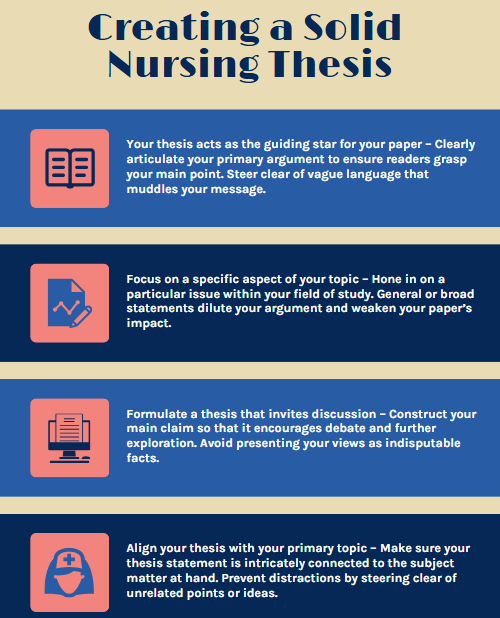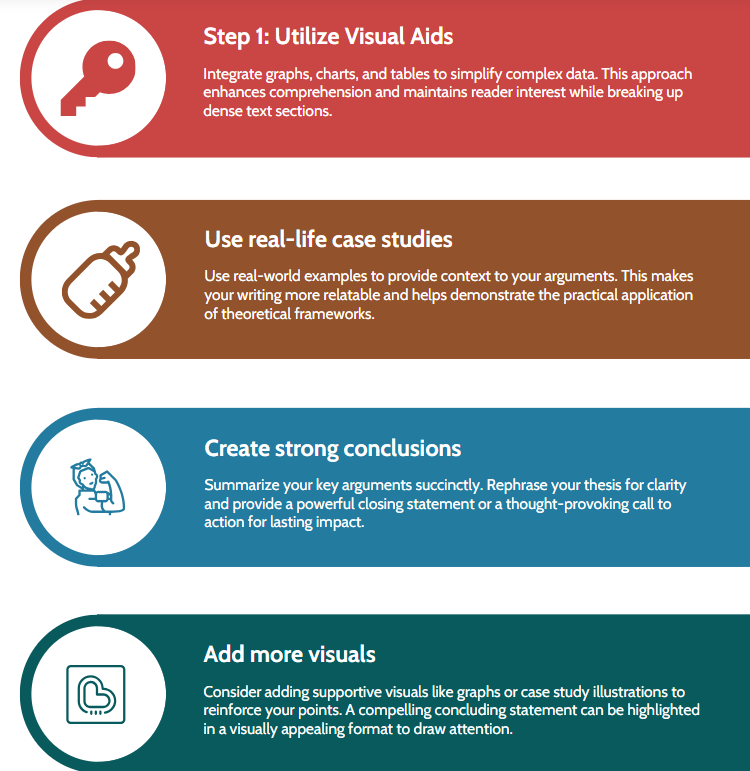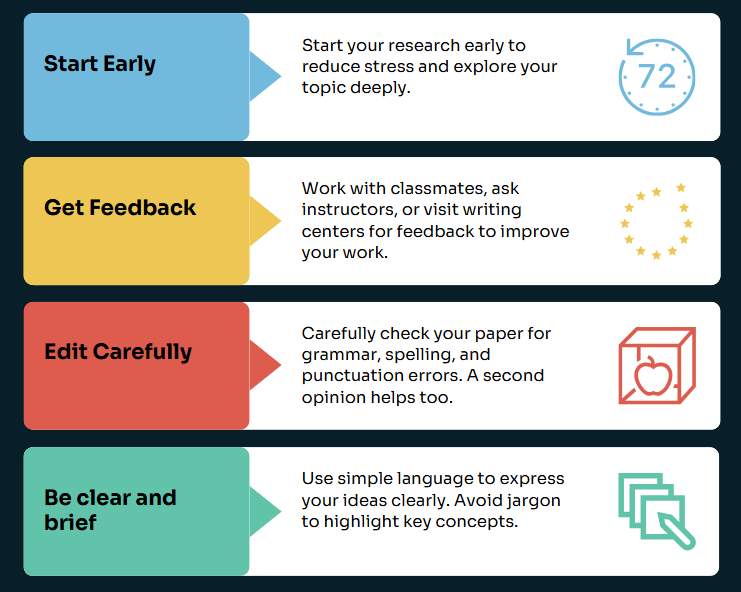
Table of Contents
The life of a nursing student is demanding, filled with rigorous coursework, clinical rotations, and the constant pursuit of knowledge. Among the many challenges, writing a compelling and well-structured nursing paper often looms large. Whether it’s a research analysis, a case study, or a reflective essay, the ability to articulate your understanding of nursing concepts clearly and effectively is crucial.
This article provides essential tips to guide you through the process, ensuring that your nursing paper not only meets the academic requirements but also showcases your growth as a future healthcare professional.
Understanding the Assignment: The Foundation of a Nursing Paper
Before putting pen to paper (or fingers to keyboard), a crucial first step is to thoroughly understand the requirements of your assignment. What is the specific topic? What is the expected format and length? What are the key criteria for grading? Are there specific resources or theories you need to incorporate? Carefully reviewing the assignment guidelines and rubric is paramount.
Don’t hesitate to clarify any doubts with your instructor or professor; this early clarification can save you considerable time and frustration later. This understanding will act as the bedrock upon which your entire nursing paper will be built. It provides direction and keeps you focused throughout the writing process. Failing to do so could result in a paper that misses the mark entirely.
Planning and Research: Building a Solid Framework
Once you have a clear understanding of the assignment, the next step is to plan and research. Don’t underestimate the power of a good outline. A well-structured outline will provide a roadmap for your nursing paper, ensuring a logical flow of ideas and preventing you from getting sidetracked. Start by brainstorming key points and then organize them into a cohesive structure. This could involve an introduction, several body paragraphs focusing on specific arguments or evidence, and a conclusion that summarizes your main findings.
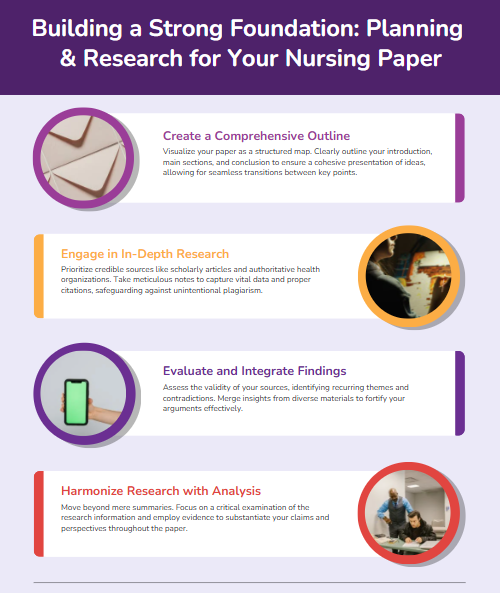
Research is the backbone of any credible nursing paper. Use reputable and peer-reviewed sources such as academic journals, textbooks, and reputable healthcare organizations websites. Avoid relying on non-academic sources that may not be accurate or reliable. When gathering information, be meticulous about taking detailed notes, and always cite your sources correctly to avoid plagiarism. A well-researched nursing paper demonstrates your grasp of relevant concepts and adds weight to your arguments. Effective paper writing requires a balanced approach between thorough research and insightful analysis.
The Key Components of a Nursing Paper
Crafting the Introduction: Setting the Stage for your Nursing Paper
The introduction is the first impression your reader will have of your nursing paper, so make it count. It should grab the reader’s attention, introduce the topic, provide relevant background information, and clearly state your thesis statement. The thesis statement is the central argument or point you will be making in your paper. It should be clear, concise, and directly related to the assignment requirements. A strong introduction will not only capture the reader’s interest, but will also provide context and give a sense of direction for the entire nursing paper.
Developing the Body Paragraphs: Supporting your Arguments
The body paragraphs are where you develop your arguments, present your evidence, and support your thesis statement. Each body paragraph should focus on a single main idea, clearly stated in a topic sentence. Follow the topic sentence with supporting evidence, such as research findings, clinical examples, or case studies. Always explain how the evidence supports your argument and connect it back to your thesis statement. This is where critical thinking skills are key. Your nursing paper needs to demonstrate that you can not only understand the facts, but also analyze them and draw your own conclusions. Remember that a well-written nursing paper balances direct evidence with insightful analysis.
The Conclusion: Summarizing and Synthesizing
The conclusion of your nursing paper is your final opportunity to leave a lasting impression. It should summarize the main points of your paper, restate your thesis statement in a new way, and discuss the implications of your findings. It should not introduce any new information, but rather reinforce your main arguments. A strong conclusion will tie everything together and leave your reader with a clear understanding of your overall message and the key takeaways from your nursing paper.
The Importance of Evidence-Based Practice in Your Paper
Nursing is an evidence-based profession, and your nursing paper should reflect this. Whenever possible, support your arguments with credible research and statistical data. This strengthens your arguments and shows that your understanding is rooted in the best available evidence. Avoid making claims without evidence, and always cite your sources meticulously. Evidence-based practice is paramount in a solid nursing paper. This demonstrates to your instructor that you are not just memorizing facts but that you understand how to apply research to practice.
Addressing Different Nursing Paper Types: Specific Strategies
The specific strategy you apply in writing your nursing paper will vary based on its type. A research paper, for instance, will require a detailed methodology section and a robust analysis of your findings. A case study will demand a thorough exploration of a particular patient’s condition, assessment, and care plan. A reflective essay, on the other hand, will focus on your personal experiences and learning during a clinical practice or observation. Understanding the expectations for each type of nursing paper is vital to ensure you tailor your approach appropriately.
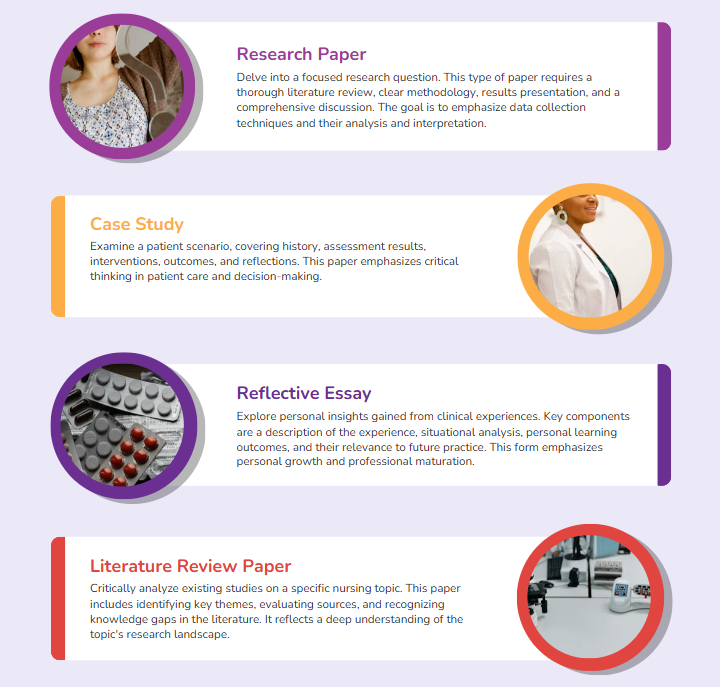
Clarity and Conciseness: The Keys to Effective Nursing Paper Writing
Clear and concise writing is essential for a successful nursing paper. Avoid jargon and unnecessary complexity. Use clear and precise language, and avoid passive voice wherever possible. Ensure that your paragraphs flow logically and are easy to understand. Remember that your audience is comprised of educated professionals, and your writing should reflect this. This clarity will help your instructor focus on your message instead of struggling through unclear prose.
Proofreading and Editing: The Final Polish on Your Paper
Before submitting your nursing paper, thoroughly proofread and edit it. Look for grammar errors, spelling mistakes, punctuation issues, and inconsistencies in formatting. It’s often helpful to ask a peer to review your paper as well, as a fresh pair of eyes can catch mistakes that you may have missed. This final step is vital in ensuring your nursing paper is polished and free of errors.
Common Mistakes in Writing Nursing Papers and How to Avoid Them
Writing academic papers is a crucial skill for any nursing student or professional. Whether it’s a case study, research proposal, or reflection paper, the ability to communicate ideas effectively and professionally is paramount. However, many stumble along the way, making common errors that can detract from their message and lower their grades. Recognizing these pitfalls and learning how to circumvent them will not only improve the quality of your nursing paper but also enhance your overall academic and professional success.
Lack of Clarity and Focus
Students often try to cover too much ground, resulting in a paper that lacks a defined thesis and clear arguments. Without a central point, the reader can get lost and find the information presented disjointed.
Solution: Before beginning to write, take time to thoroughly plan your nursing paper. Clearly identify your thesis statement and outline the supporting arguments. Each paragraph should contribute to that central theme, ensuring a cohesive and focused discussion. This will help you avoid drifting from the topic and maintain a clear trajectory.
Poor Research and Citation Practices
Nursing relies heavily on evidence-based practice, so it’s essential to use credible and up-to-date sources. Using outdated information or relying on biased websites can undermine the validity of your arguments. Similarly, inconsistent or inaccurate citations can lead to plagiarism, a serious academic offense.
Solution: Prioritize research using reputable databases like CINAHL, PubMed, and Cochrane Library. Meticulously record all source information and utilize a consistent citation style (e.g., APA, MLA). It’s always better to over-cite than to risk unintentional plagiarism. Using citation management tools can also be a great way to stay organized and avoid errors in formatting.
Poor Grammar and Spelling
Grammar and spelling errors are a significant detriment to any nursing paper. Errors not only distract the reader but can also indicate a lack of attention to detail, a quality highly valued in the nursing profession. Simple mistakes can detract from the credibility of your work, regardless of the substance.
Solution: Always proofread your work meticulously. Use grammar and spell-check tools, but don’t rely solely on them, as they won’t catch all errors. Asking a peer to review your work can also be incredibly beneficial, providing a fresh perspective. It might also be helpful to read your paper aloud, as this can help you catch awkward phrasing or missing words.
Weak Analysis and Critical Thinking
Many nursing papers suffer from weak analysis and critical thinking. Merely summarizing facts is insufficient; you need to demonstrate an ability to interpret information, draw conclusions, and apply concepts to specific scenarios. Simply restating what you’ve read doesn’t demonstrate that you’ve truly processed and internalized it.
Solution: When analyzing research or case studies, move beyond basic descriptions. Explore the strengths and limitations of the study, consider alternative viewpoints, and connect your findings to broader nursing practices. Think critically and challenge assumptions. Ask yourself, “So what?” at the end of each paragraph, to push yourself toward deeper analysis.
Failure to Adhere to Instructions
A common pitfall is failing to adhere to the specific instructions provided by your instructor or the assignment guidelines. This could include ignoring word limits, missing deadlines, or not following the required formatting. Disregarding these details can indicate a lack of professionalism and respect for the assignment requirements.
Solution: Carefully read and understand all the requirements before starting your nursing paper. If you are unsure about anything, ask your instructor for clarification. Create a checklist based on the requirements and make sure you’ve ticked all boxes before submitting your work. Planning your time effectively is also crucial to avoid last-minute rushes that increase the likelihood of errors.
Lack of a Formal and Objective Tone in Writing
Using informal language, personal anecdotes, or biased opinions can detract from the credibility of your academic work. Your nursing paper should be written from an objective and scholarly perspective.
Solution: Avoid using first-person pronouns (I, me, we) unless specifically instructed otherwise. Maintain a professional and academic tone throughout the paper, focusing on evidence and analysis, not personal feelings.
Avoiding these common mistakes will significantly improve the quality and impact of your nursing paper. By focusing on clarity, thorough research, meticulous citation, strong analysis, careful adherence to guidelines, and a professional tone, you can produce high-quality work that reflects your knowledge and skills as a nursing student or professional. Remember, writing is a skill that improves with practice and attention to detail.
When to Seek Nursing Paper Help
While diligent effort is essential, sometimes, seeking additional nursing paper help might be beneficial. If you’re struggling to understand the assignment, organize your thoughts, or effectively articulate your arguments, consider reaching out to your university’s writing center. They often provide valuable assistance with writing skills and can offer constructive criticism on your drafts. Additionally, for students facing overwhelming academic demands, some may explore nursing paper writing services that provide support in research, organization, and editing. However, it is always crucial to ensure any nursing paper writing service is reputable and avoids plagiarism, as submitting work that is not your own can have serious academic consequences.
Nursing Paper Writing Service Considerations
For many students, the pressures of clinical rotations, family responsibilities, and other commitments can make it challenging to complete every nursing paper independently. This is where the option of seeking nursing paper writing service assistance might arise. If you choose to go this route, it is absolutely essential to choose a service that guarantees original work, delivers on time, and adheres to ethical academic principles. While nursing paper help should not involve submitting work that isn’t your own, reputable services can offer assistance with research, editing, and formatting. Be vigilant and cautious in choosing a reputable option when considering nursing paper help.
Frequently Asked Questions about Nursing Papers
Nursing students often encounter a variety of written assignments, leading to numerous questions about what’s expected. Understanding the nuances of a strong nursing paper is key to academic success. The following are some of the most frequently asked questions.
What is the purpose of a nursing paper?
A nursing paper serves several crucial purposes. It’s not just about showcasing your knowledge of healthcare concepts, it’s about demonstrating your ability to critically analyze information, apply evidence-based practices, and communicate effectively in a professional manner. These papers often require students to explore complex health issues, evaluate research, and propose solutions or interventions, all while adhering to academic writing standards.
What are the common types of nursing papers?
Nursing papers can take many forms. Common examples include research papers, which require an in-depth analysis of existing studies; case studies, which focus on a specific patient scenario; and concept analyses, which delve into the understanding of core nursing terms. Reflective essays, where students analyze their own learning experiences, are also often assigned. Each type requires different approaches and citation methods.
How do I choose a topic for my nursing paper?
Choosing a compelling and manageable topic is crucial. Start by brainstorming topics that align with your interests and current coursework. Consider focusing on an area where you’ve encountered challenges or have a strong desire to learn more. Ensure your topic has sufficient available resources and that it meets your professor’s requirements. A well-chosen topic makes the writing process more engaging and the final nursing paper stronger.

What are the key components of a strong nursing paper?
Regardless of the paper type, several elements are crucial for success. A clear thesis statement, well-structured paragraphs with strong topic sentences, and accurate use of professional language are essential. Proper citation using a recognized style (like APA or MLA) is non-negotiable to avoid plagiarism. Always back your claims with credible evidence and conclude by summarizing your main points. A thoroughly researched and well-written nursing paper demonstrates critical thinking.
Where can I find credible resources for my nursing paper?
Rely on scholarly journals, reputable textbooks, and established healthcare websites for information. Avoid relying on general websites or blogs for your research. Your university library and databases offer a wealth of reliable resources. Always evaluate the sources’ credibility before incorporating them into your nursing paper.
What tips can improve the quality of my nursing paper?
Begin early, and don’t underestimate the time required for research and writing. Seek feedback from professors or writing centers. Proofread meticulously for grammar and spelling errors. Remember that a good nursing paper is not just about content; presentation and clarity are equally vital.
The Bottom Line
Writing a compelling nursing paper is a challenging but rewarding endeavor. By understanding the assignment requirements, planning your work carefully, conducting thorough research, and paying attention to clarity and conciseness, you can produce a paper that not only meets the academic requirements, but also demonstrates your grasp of the essential concepts in nursing. Remember to leverage available resources, don’t be afraid to ask for help when needed, and always prioritize academic integrity.
Through consistent effort and the application of these tips, you can conquer the challenges of nursing paper writing and achieve success in your nursing education journey. Remember that seeking nursing paper writing assistance should only be done with extreme care and awareness of potential consequences. Focus on developing your own writing skills, and your nursing paper will reflect the best of your academic work.
Get Professional Nursing Paper Writing Help
At Nursing Papers, we help students to achieve success with professional nursing paper writing services. We can assist you with nursing topic suggestion, paper writing, proofreading, editing, formatting and plagiarism removal. Get in touch with us today for help with writing nursing research papers, essays, case studies and dissertations.


